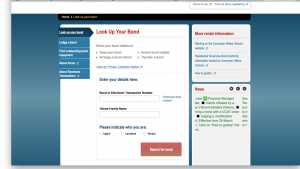This is a transcript of our interview with Matt Atkinson, a property finance specialist from Condor Finance Partners, a mortgage brokerage in Melbourne.
Matt spent some time in corporate finance with EY and Deloitte and banking with NAB, one of the big four banks in Australia, before stepping out and focusing specifically on the property sector.
Overview
What would you say are the key differences in buying a property in Australia?
Whether you’re coming to Australia from Europe or the UK, America, or South Africa, the process is largely similar in some respects. By that, I mean your source of property might be through a local agent or going to a platform. You’ll search the websites and find something you like in a specific area. If you’re in a fortunate position, you buy it for cash or, like most Australians here, you’ll need to get some finance to help you with that property.
But there are three key differences:
1) The pace at which the market moves.
People here see it as an avenue to build wealth, and what that means is there’s generally quite a bit of property transactions. So, if you’re looking to buy, you want to have all your ducks in a row so you can get going and make sure you can look to purchase with confidence.
2) The location.
Australia is a big country, but a large part of the population lives around the fringes–the eastern states, Perth on the west coast, and others sprinkled up in the north and south. So, although there’s a large land area, that’s all condensed into your metro areas.
For example, given the population and the land size, you’ll still see your medium house value in Sydney, for example, about $1.4 million. Down here in Melbourne, you’re looking at $1 million for an average family house.
3) The lenders.
I’ll use South Africa as an example here. In South Africa, you might have 10 to 15 lenders that specialise in mortgage lending. In Australia, you would have well over 40. That is quite a bit of competition when you are looking to get a mortgage.
Lenders are slightly different around their policy, so there are various lenders that may be better suited to you than others, depending on your personal circumstances.
What is a mortgage brokering service, and what can it provide to people?
Mortgage brokers are property finance specialists acting as an intermediary between the lenders and the borrowers. We have access to multiple different vendors and all their products. We work with the individual and work out and develop a personal lending strategy for them.
What that entails is taking into account their personal financial circumstances–incomes, assets, liabilities, expenses–and then looking for appropriate lending products that match their profile and what they’re trying to achieve from an objective financial perspective. It could be their first property, family home, or an investment.
Do Australian banks lend to non-residents?
Typically our banks would lend to Australian citizens and permanent residents based here. But that’s not to say someone newly arrived would be completely excluded from that conversation.
You just need to understand the different vendors and what their policies allow for what looks like an appropriate borrower.
The broker can help by having further conversations, unpacking a bit more around what visas they’re on, and understanding their personal financial position.
Once a broker has an understanding of that, they can put together the vendor policy and see what a potentially appropriate financial solution is available to that person.
So, if you have just arrived and are looking to get into the market, open up that conversation with a broker to really get a good understanding of what your options are. It can be a bit complex, but that’s not to say there isn’t a solution.
It’s a big life decision, and anyone’s life revolves around buying property, especially considering the prices we discussed. So, you want to make sure that you can put your best foot forward and borrow with confidence.
Is there a difference between going to a broker and going to the bank directly?
If you’re going into a bank, they would have a variety of different products that they can work with you on. You may find that some of those don’t best suit you in terms of what you’re after or what your personal circumstances reflect.
A broker, on the other hand, has access to multiple different lenders. By understanding different lenders and their policies and products, brokers can tailor something to your specific circumstances.
Don’t be disheartened if you’ve spoken to a lender and that outcome isn’t what you expected or is not positive. What I would encourage you to do is do a bit of research, have a conversation with some property finance specialists and work through that with them to see what results you may get.
What are the different ways of buying a house in Australia?
Auction
An auction is a public bidding process where the highest price generally wins the auction. There will be a price guide that is set, and the sellers will have a reservation price that they would like to see crossed prior to the property being on the market.
The auction will be hosted on a specific day, and people are there bidding as you would.
It’s a process that can be quite stressful. You’re bidding quite a bit of money.
You want to be sure, in terms of:
- What you can borrow
- The downpayment
Because in an auction you don’t have any subject to finance, so if you’re looking to buy, you’d be asked to put down a deposit and sign those contracts very soon after the auction finishes.
Private sale
A private sale where the owner would advertise their house, put up their price point and then entertain direct offers potentially through a real estate agent and agree on a price and move forward from there.
What does pre-approval mean?
In an auction, you must understand your financial position before engaging in the process. It helps set realistic price expectations and can prevent unnecessary stress.
By getting pre-approved for a loan, you can determine your borrowing capacity and bid with confidence. While this isn’t a guarantee, it significantly improves your chances of a smooth transaction. Having your finances in order can streamline the buying process, especially when dealing with tight settlement deadlines.
How long does home buying typically take?
The time it takes to buy a home varies greatly depending on individual circumstances.
One key factor is obtaining pre-approval for a loan. This process typically takes four to six weeks but can be expedited under specific conditions and may be as short as a week.
Once pre-approved, the timeframe depends on how quickly you find a suitable property. Auctions can be swift, while private sales or working with a buyer’s agent might take longer.
The entire process can range from a few months to over a year. So, finding the perfect home often requires patience and flexibility.
Can foreign income streams be included as part of a buyer’s income to help them have more buying power?
The simple answer is yes and no. That’s also driven by the different lenders associating that with different risks. So, regarding foreign income, what’s really important is understanding what it is for. How often is it paid? What does it relate to? Is it within the lender’s policy?
Some lenders may accept a high amount or exclude it depending on what it is.
So, have a conversation with the bank directly or with a property finance specialist and provide them with a good understanding of what that is and how it’s earned.
Then, what they’ll be able to do is pair that with policy and understand if that can be a part of calculating your borrowing power towards going for a pre-approval or your house purchase.
Is there any cost of working with a broker?
I’ll start with the first question about how brokers are paid. Typically, brokers are paid directly from the lender at settlements of your loan. So in a normal property purchase, the borrower wouldn’t pay the broker directly.
Also, it’s important to note from a transparency perspective that as we work through the process, we will disclose directly to the borrower how our fees are calculated and how we are remunerated. So although they aren’t paying us directly, we do show that as part of the transparency so they can understand that as part of the transaction.
Some brokers may charge additional fees for other services that they offer as part of that. So, it’s worth asking that question upfront.
It’s important that before proceeding, they let you know that they’re charging a fee and provide a clear understanding in terms of what that fee is for.
How far in advance should people start talking to a broker?
We work with clients throughout the entire property journey. This includes first-time homebuyers, those looking to renovate or upgrade their home, and investors aiming to build a property portfolio.
Whether you’re freeing up equity, paying off debt, or simply exploring your options, we can help.
You may contact Matt at [email protected]







